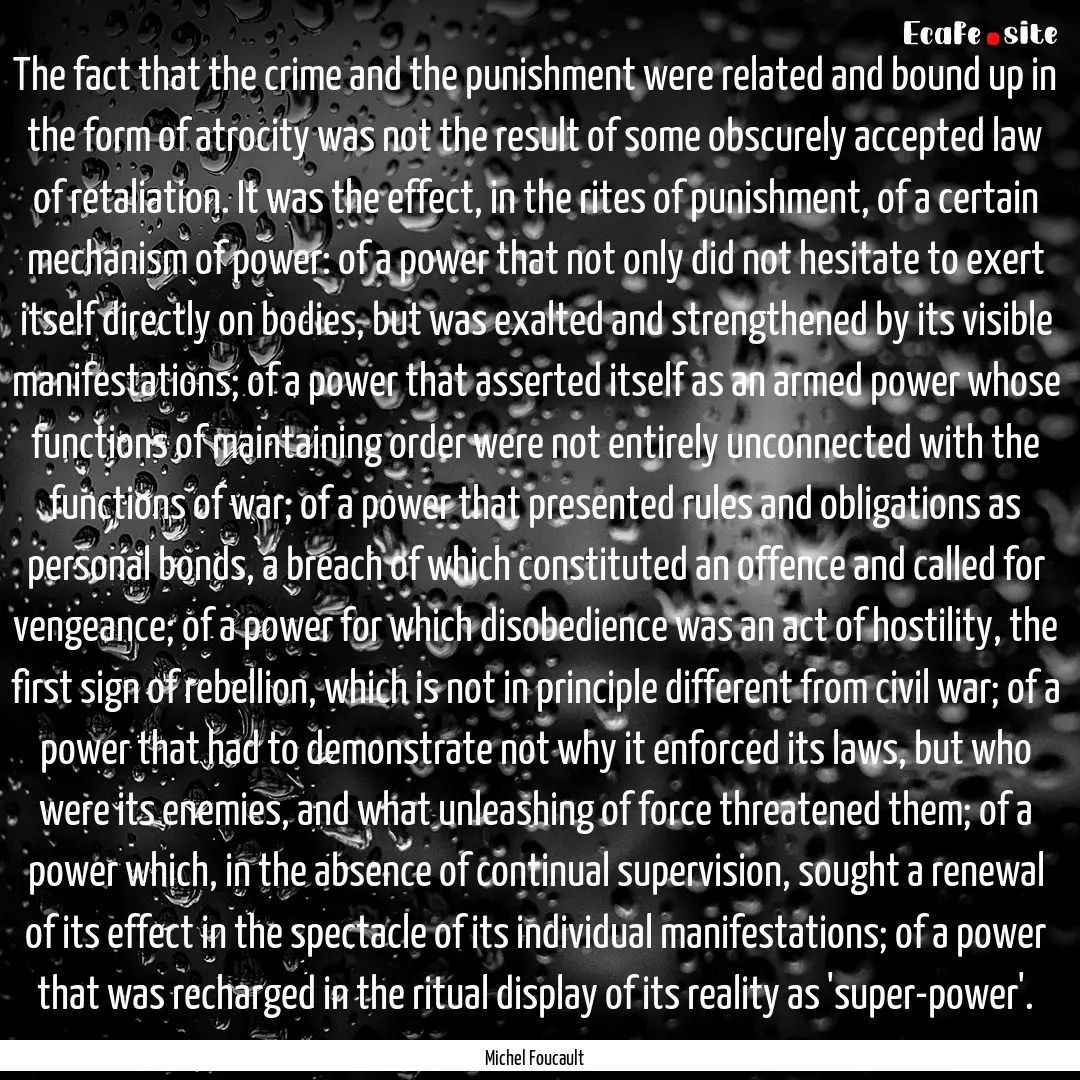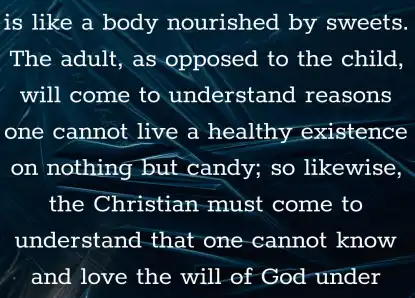
Report, if you have a problem with this page“ The fact that the crime and the punishment were related and bound up in the form of atrocity was not the result of some obscurely accepted law of retaliation. It was the effect, in the rites of punishment, of a certain mechanism of power: of a power that not only did not hesitate to exert itself directly on bodies, but was exalted and strengthened by its visible manifestations; of a power that asserted itself as an armed power whose functions of maintaining order were not entirely unconnected with the functions of war; of a power that presented rules and obligations as personal bonds, a breach of which constituted an offence and called for vengeance; of a power for which disobedience was an act of hostility, the first sign of rebellion, which is not in principle different from civil war; of a power that had to demonstrate not why it enforced its laws, but who were its enemies, and what unleashing of force threatened them; of a power which, in the absence of continual supervision, sought a renewal of its effect in the spectacle of its individual manifestations; of a power that was recharged in the ritual display of its reality as 'super-power'. ”

Michel Foucault
From : Discipline and Punish: The Birth of the Prison



